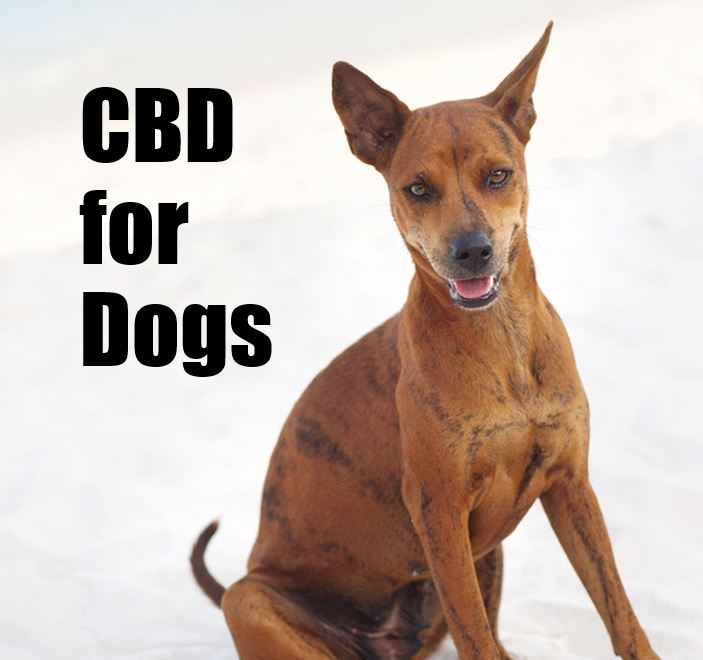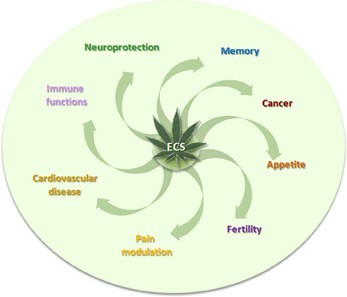CBD for dogs – health benefits!

It’s a big and sometimes frowned upon topic, but there are numerous alleged benefits of CBD for dogs in a variety of applications.
Personally, I started giving CBD oil when my Border Collie was diagnosed with lymphoma as a *miracle cure* (it’s common in hard times to put faith in such things). Sadly it didn’t cure his cancer, but it definitely helped him sleep at night and enjoy the days. It potentially helped him in other ways too.
CBD for dogs has become more popular in recent years, particularly hemp-based treats and oils. One clear nutritional benefit is they’re an excellent source of omegas 3, 6, and 9, which support joint health, heart health, skin, coat, and general wellbeing in a dog.
Let’s take a deep dive into CBD and it’s benefits (and speculative benefits) for dogs:
What is CBD and what are the benefits for dogs?
CBD (cannabidiol) is a naturally occurring compound found in the hemp plant. It is one of more than one hundred compounds known as cannabinoids. Unlike THC (Tetrahydrocannabinol), CBD does not cause a high and it is completely safe to use, even for dogs.
CBD has been found to have many medicinal uses. Amongst those are the relief of pain, inflammation, anxiety, and seizures. It’s also known to be beneficial for the digestive system and it stimulates the appetite.
CBD works by interacting with the endocannabinoid system (ECS) in the body. This is a system that helps maintain the natural balance in the body, which is known as homeostasis. The ECS regulates things like pain and inflammation. It also regulates appetite.
Every mammal has receptors in its body for cannabinoids — chemical compounds that are found in hemp. When these non-psychoactive compounds interact with the ECS, they help govern the body’s appetite, sleep, mood and memory. This interaction is also involved in how our bodies fight inflammation, the perpetrator in many diseases.
As dog owners, we struggle with deciphering our dog’s emotions, especially when it comes to challenging behaviors like separation anxiety and incessant barking and more complicated disorders such as cancer and arthritis. Wouldn’t it all be easier if we could communicate with our dog and they could tell us where it hurt?
While CBD oil can’t magically teach your dog English, dog owners are increasingly reaching for CBD pet treats to relieve pet discomfort and help with a wide range of ailments.
Is CBD safe for dogs?
There have been numerous animal studies into the effects of CBD. The compound is not psychoactive, so it will not make your dog high. It’s non-toxic and there have been no reports of any dogs overdosing on CBD (although like with all things, keep in moderation).
CBD is used to treat dogs for a wide variety of ailments. Studies have found it to reduce anxiety, control pain, and prevent seizures. These days CBD is widely by humans to treat a range of diseases, so it is understandable these benefits may translate to dogs as well. CBD is known to reduce epileptic seizures and potentially alleviate the side effects of chemotherapy.
Like all medications and supplements, it is advisable not to give your dog too much CBD. Whatever the medical reason you are giving CBD to your dog for, it’s always worth talking to your vet first. When my dog was suffering lymphoma, my veterinary oncologist promoted chemotherapy as “the most effective way forward”, but saw no reason CBD oil shouldn’t be used, stating it may help, it may not – there’s no harm in trying.
Where to buy CBD for dogs in Australia
These days CBD for dogs is readily available, even from big name retailers. A quick search of the Internet should offer you a variety of options in CBD oil, CBD treats, or hemp treats.
Before buying any CBD treats it’s worth taking a look at the ingredients, as like other nice treats they’re often cheaply derived from something like wheat with a tiny bit of CBD as a marketing hook.
Using CBD to encourage appetite in dogs
People who take recreational cannabis often experience what they call the munchies. They feel an overriding urge to eat. The extreme increase in appetite that cannabis users experience is caused by the psychoactive cannabinoid THC. CBD causes a slightly milder increase in appetite, but without any psychoactive effects at all.
Dogs are susceptible to the same munchies effect, which is why CBD for dogs can help in this respect.
Causes of loss of appetite in dogs
A dog not eating isn’t something that you should immediately be concerned about. Just like how sometimes we simply don’t feel hungry, dogs are sometimes the same. If something stressful happened in the day, for example, this might affect your dog’s appetite.
However, if the problem persists, it could indicate a potential underlying problem. If your dog eats nothing at all for more than 48 hours, you should take your pet to the vet.
Symptoms of a dog not eating
The symptoms of a dog losing its appetite are not always as straightforward as the dog not eating at all. If you’ve read some of the reviews on this website for poorer quality dog foods, you may understand one of the reasons a dog refuses to eat a food – because it’s not what they want to eat.
Here are the main indications that your dog is not eating as much as it should be:
- Refusing to eat any food at all
- Eating less than usual
- Refusing to eat treats
- Trying to eat, but not finishing meals
- Loss of weight
- Lethargy
- Vomiting
Reasons for loss of appetite in dogs
There are numerous reasons a dog’s appetite may diminish. Some are minor, but note there are some serious conditions that will cause a loss of appetite.
Minor reasons for a dog not eating
Here are some of the more common minor reasons for loss of appetite:
- The dog is a picky eater (or the food you’re feeding isn’t species appropriate, which is common with commercial dog foods).
- A change in routine has upset the dog – they’re very susceptible to such things
- Your dog may have eaten something inappropriate which is causing them discomfort
- Upset stomach (many possible reasons)
- Nausea
More serious reasons for a dog not eating
Here are some of the more serious reasons why your dog may not be eating, and it’s important to seek advice from your vet to rule out these possible causes:
- Diabetes
- Cancer
- Intestinal Worms
- Renal failure
- Irritable Bowel Syndrome
- Bacterial infection
- Excessive stress
- Viral infection
- Digestive issues
- The dog is in pain
- Kidney disease
- Liver disease
The differences between THC and CBD
CBD is one of two cannabinoids which comes from the cannabis plant. The other is THC, and that’s the part which causes a “high”. Seeing as most people don’t want to get their dog high, this is the reason only the CBD cannabinoid is used in commercial CBD dog treats.
Let’s take a look at the two so we can fully understand the differences:
What’s CBD?
CBD stands for Cannabidiol and is the second most prominent cannabinoid in most cannabis strains.
CBD is superior to THC at the variety of medical conditions it helps with and is a great substance for treating pain, anxiety and inflammations. However, it is most popular for its relaxing and bacteria killing benefits.
Unlike THC, CBD does not produce a high (euphoric sensation or an altered state of mind) but rather affects and relaxes your body. It can be said CBD is the primary choice of medical patients in the human space, depending on their illness.
What’s THC?
THC stands for Tetrahydrocannabinol and is usually the most famous (or at least the most mentioned) substance of them all. If THC and CBD are to be personified into twin brothers, then THC would be the outgoing twin and CBD would be the national mathematics high-school champion.
Jokes aside, THC is the only psychoactive compound in the cannabis plant and is responsible for getting people high (euphoric). That is not to say that it is not beneficial for medical users.
THC tackles a wide variety of medical symptoms rather efficiently and is awesome at relieving chronic pain, increasing appetite & reducing nausea.
How do THC and CBD “work”?
What may be surprising to you is that THC and CBD actually fit into your body’s receptors like a glove. Studies show this is the case for all mammals, including dogs.
Mammals have something which is called an endocannabinoid system (ECS). This is a physiological system which basically regulates your health by ensuring you are in the state of homeostasis (balance).
ECS essentially connects your body and mind, making sure everything is in balance and that no unwanted processes take place.
It does this through a series of stimulators and receptors and has the end goal to make cells in a certain area work as efficiently as possible. So, essentially, it is a system that operates on a cellular level.
The stimulators are called cannabinoids — they can be either endocannabinoids (produced by our bodies), phytocannabinoids (found in certain plants, like cannabis), or synthetic cannabinoids (produced artificially in the lab).
The receptors are called CB1 and CB2 — and they are scattered throughout the body. CB1 receptors are a part of our nervous system while CB2 are found in our immune system.
When a receptor gets stimulated, it sets off an avalanche of cellular processes: autophagy, stabilisation of nerve cells, reduction of pro-inflammatory cells and many more.
THC, for example, primarily activates your CB1 receptors, that are located in the central and peripheral nervous system. CBD, on the other hand, is more oriented towards promoting anandamide, which is a neurotransmitter that also activates CB receptors.
That explains why CBD has an antagonistic effect over THC (i.e. the higher the CBD concentration, the less psychoactive effects the user experiences).
Essentially, entire appeal of cannabinoids (and mainly THC and CBD) can be contributed to their ability to stimulate various receptors in the body, and therefore regulate cellular homeostasis.
What are the biggest differences between THC and CBD?
Even though both THC and CBD provide a wide variety medical effects, there is an important difference between them, that’s obvious right off the bat – THC has psychoactive effects, and CBD does not.
When it comes to relieving symptoms for your dog, it is important to consider they can’t tell you how they feel. Accordingly, it is better to stick to hemp or CBD dog treats rather than any form of THC. This may not always be the rule, but in most circumstances it should be.
Hemp vs cannabis oils for dogs
There’s often some confusion with hemp and cannabis, particularly with oils and dog treats. Most of the time in Australia you’ll find hemp dog treats to be more common, and most CBD oils for dogs will be hemp-based.
Let’s take a look at both hemp and cannabis oils:
Hemp seed oil
Hemp seed oil is a non-psychoactive oil that comes to life through the pressing of hemp seeds. There is little to no THC found in the seed of a hemp plant. The seed is produced over time with the company of a male and female plant, whereas cannabis oil can only be produced solely from the bud of a female plant.
Hemp seeds and oils are extremely healthy for all of us.
They are a plant medicine themselves and have a unique protein, which is the most easily digestible of any proteins found in nature. As well as having a almost perfect balance of Omega 3, 6, and 9 and all essential fatty acids, it truly is a superfood.
You’ll find in many reviews of our top-rated dog foods the mention of ingredients rich in omegas, and why these are so beneficial for our dogs. They’re one of the key reasons why hemp oil is good for dogs.
Hemp oil is best taken in its raw form so that none of its powerful nutritional benefits are harmed, but there are numerous commercial treats these days sold at a variety of pet food retailers.
Cannabis oil
Hemp cannabis oil has been a hot topic in recent years, being on one side notorious due to stigma, but on the other side consider a healer for many diseases in the world today. THC and CBD are the main active compounds that are being researched across the world as a potential cure for in a variety of applications. Medical cannabis has become more widely used in the human space, and it is expected this will follow suit in the pet space in due course.
The main reason cannabis oil is frowned upon is due to the inherent psychoactive effects. In the human space it is argued the oil is used in a dangerous or irresponsible manner. With our dogs being unable to communicate there is a further hurdle and it is important to understand this risk.
What is the Endocannabinoid System and how does it work?
Named after the marijuana plant Cannabis sativa, the Endocannabinoid system is a communication system between the brain and the human body, with a strong impact on a series of functions from feelings and mood to pain perception and movement.
The endocannabinoid receptors are found throughout the body, and depending on their location, they exert a different action on the organism.
Some receptors are found in the brain, others in glands and other in immune cells, the main role of these receptors being to maintain the body’s internal equilibrium, or homeostasis.
Research articles
A recent survey study conducted by American Holistic Veterinary Medical Association reported 61.8% to 95% of pet owners have endorsed the health benefits of CBD treats for dogs, ranging from ‘moderate to excellent’.
Some of the medical conditions that were relieved by these edible treats include pain, nervous system problems, inflammation, anxiety, vomiting, digestive system problems, tumors, seizures/convulsions, skin problems and phobias, including relieving anxiety caused by fireworks or thunderstorm phobias.
“CBD for dogs”, written by D D’Angelo







